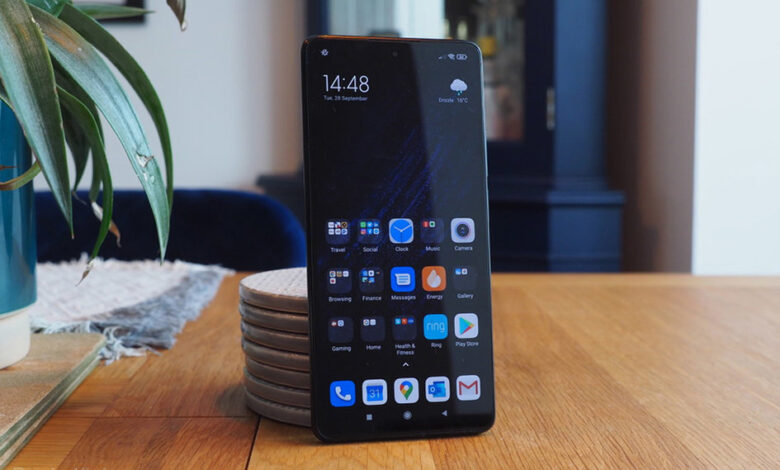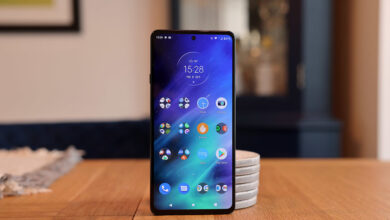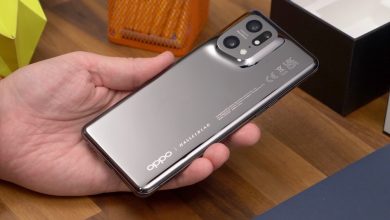It’s not Mi, it’s you

[ad_1]
(Pocket-lint) – If you’ve been following Xiaomi for some time then you’ll spot that the 11T Pro, reviewed here, is absent of one small yet significant thing: there’s no ‘Mi’ prefixed to the product name. It’s all change for the company’s branding in the latter half of 2021 onwards, then, with this sub-flagship the first international release to carry the new naming convention.
Well, we say ‘sub-flagship’, but that’s only by positioning within the company’s handset line-up. In terms of specification the Xiaomi 11T Pro is pretty much a beast throughout, delivering a top-tier processor (Qualcomm Snapdragon 888), a fast-refresh screen (120Hz OLED), and a 108-megapixel main camera as part of its triple rear setup.
Indeed, we sometimes wonder why Xiaomi pours so much into its upper-echelon flagship devices when, on paper at least, the T series comes up trumps and undercuts its own brethren – all for a cut of the price. So is it the perfect affordable phone, or are there certain misgivings that hold it back from being better?
Design & Display
- 6.7-inch OLED panel, 1080 x 2400 resolution, 120Hz refresh rate, 1000 nits peak brightness
- Build: Gorilla Glass Victus front, aluminium frame, glass rear
- Finishes: Meteorite Gray, Moonlight White, Celestial Blue
- Side-mounted fingerprint scanner (in power button)
- Dimensions: 164.1 x 76.9 x 8.8mm / Weight: 204g
It’s worth pointing out that the 11T Pro arrives alongside the ‘standard’ 11T. The two handsets are mighty similar, though, with the very same screen and physical design. It’s only really the processor that shifts between the pair, which in the Pro means the addition of 8K video camera and HDR10+ high dynamic range features.
Whichever of the two handsets you go for the screen is an accomplished slice of OLED, delivering a large 6.7-inch diagonal scale, ample resolution and, as is the flavour for 2021, a fast refresh rate of up to 120Hz.
It’s a flat screen, so there’s no distortion of colour aberration to its edges (like you can get with curved displays), there’s lots of brightness to deliver punchy images, while the variety of colour options within the settings – you can have the handset auto-adjust based on ambient light colour, while choosing your preset preference for vividness – makes for a panel that you’ll be able to get pretty much perfect for your preferences.
The only mishap we’ve had with the screen is, for a totally unknown reason – we’ve been very kind to this handset, honest – that the front panel has already scratched after a not particularly extended usage period. Which is an extra surprise given it’s Gorilla Glass Victus, also known as the best consumer phone protection you can buy right now. Hum.
As the screen is flat and only the rear has a subtle curve to make for a more ergonomic hold, however, the 11T Pro feels rather chunky. This is a big handset, not only as a result of its screen, but also the large-scale battery capacity within. It’s not unwieldy, but it’s hardly delicate either.

Thankfully the rear cameras enclosure doesn’t protrude several hundred miles (yes, we’re exaggerating) – akin to what you’ll find on the Mi 11 Ultra. The 11T Pro keeps things looking much neater, although the edge of that camera protrusion isn’t particularly robust and has scuffed within a week of use.
The rear design is apparently a glass panel, according to the specification, but looks and feels rather plasticky. It’s very fond of fingerprints, too, while the subtle horizontal texture – which looks as if it’s trying to emulate a metallic finish – only really adds to this ‘fake’ look. At least there are no gigantic logos brandished on the rear, Xiaomi instead keeping things neat and tidy.

As for logging in, there’s a fingerprint scanner positioned within the power button to the side. It’s responsive, well-positioned, and not having an in-screen option hasn’t affected our enjoyment of use at all.
Performance & Battery
- Qualcomm Snapdragon 888 platform
- 128GB storage, 8GB RAM minimum
- 5,000mAh battery capacity, 120W fast-charging
- Connectivity: Wi-Fi 6, 5G
Having used the 11T Pro for a full week and there’s no doubting this is one powerful phone. No surprise, really, given the Qualcomm Snapdragon 888 processor at its heart (the ‘non-Pro’ model opts for MediaTek Dimensity 1200 instead, in case you’re interested). It also must be said that it sounds rather great, those Harman Kardon tuned stereo speakers delivering well-projected and clear audio that have made our South Park: Phone Destroyer battle sessions that much more fun.

When it comes to navigation, connectivity, running apps and games there’s nothing to hold you back. Well, caveat: so long as the app settings are individually tweaked to permit them to run more freely than the default settings permit.
That’s one of the irks of Xiaomi’s MIUI software, here in version 12.5, which is dead set on limiting applications so that they don’t have permanent permissions to run – which has in various iterations of the software caused significant delays with notifications, for example, and other quirks. Unusually, however, we’ve had no such specific notification bothers in this particular setup, so here’s hoping the latest software version has that under control.
But MIUI does introduce its share of peculiarities. Wallpaper Carousel, for example, is a bizarre mix of pictures and quotes that’s constantly changing and we quickly had to switch that off. The swipe-down action from the top of the display also has a dual action – it’s split left and right for notifications and settings respectively – which most Android users will just find irritating. None of which is too bothersome that you can’t adapt to it, dig in the settings, and get things setup as you please though.
A lot of that software intent is to keep devices running as long as possible; to be kinder to the battery. The 11T Pro does fairly well on this front, but it’s not as long-lasting as its predecessors – which given the 5,000mAh total battery capacity is a bit of a surprise. That said, getting through a single day of moderate-to-heavy use is no problem at all – we’ve been getting 15 hours of use in and have 20 per cent remaining on typical workdays.
We suspect this is down to the power available: Qualcomm’s Snapdragon 888 means gaming is a breeze, the 120Hz screen can be put to maximum use as and when needed, and that can generate a little extra heat as a result – but we’ve not found the 11T Pro to overheat by any means.

Besides, the charging is crazy-fast thanks to 120W support, meaning you can top-up the battery in under 20 minutes. Yes, from dead to full. That’s achievable in part because the battery is actually divided into two cells (at 2,500mAh each), which assists the HyperCharge system in achieving its mind-boggling speeds. If you’re near a wall socket, therefore, you’ll never have battery anxiety.
Cameras
- Triple rear cameras:
- Main (26mm): 108-megapixel, f/1.8 aperture, 0.7µm pixel size, phase detection autofocus (PDAF)
- Wide-angle (13mm): 8MP, f/2.2, 1.12µm
- Telemacro (50mm): 5MP, f/2.4, 1.12µm
- Selfie camera: 16MP, f/2.5 1.0µm
One thing we’ve noticed when reviewing sub-flagship handsets in sequence – it’s been a bit of a thing in 2021, as this market is extra competitive – is that many manufacturers gloss over the cameras, providing excessive lenses that deliver moderate results.

Not so with this Xiaomi. The 11T Pro’s rear setup might lack a proper zoom lens, but we can live with that given the quality from the main camera. Even the telemacro – a 2x zoom for close-up shooting – is (at 5MP) a step above many of the lower-resolution afterthoughts that you’ll find in much of the competition.
The key part of the puzzle, however, is the quality of the main camera. This is 108-megapixels all-in, but the system produces a single pixel in an image from nine of the ‘pixels’ on the camera sensor – a bit of clever processing can obtain greater light, colour and sharpness information by comparing each of these sites for the final image.
: Wide-angleWide-angle
It sounds like some kind of magic, but it works really well: the 11T Pro delivers sharp results that’ll put many bog-standard mid-range devices to shame, while its results in dim through to low-light conditions are exceptional too. The camera app can apply processing to really pull detail and exposure out of otherwise darker sections in an image too.
It’s a shame that there’s no optical stabilisation on the main lens, however, because holding it steady – especially when shooting Night Mode shots where multiple exposures are taken – would be made easier. Can’t have it all, though, we suppose.
The wide-angle sensor in the 11T Pro is the same as you’ll find in the Mi 11 Lite 5G, delivering an 8-megapixel resolution – so it can’t deliver the same fidelity as the main camera by any means, and displays some blur to the edges as is common from an ultra-wide lens. Still, there’s practical use from a sensor such as this, so it’s a positive to have it on board rather than not – it’s a lot more useful than a depth sensor, for example.

We like that the 11T Pro’s camera setup isn’t trying to oversell itself. It feels kind of humble in that respect – because, certainly from the main lens, results are impressive. Some of the bells and whistles you can find further up the typical flagship range do lack – optical stabilisation, a zoom lens, high-resolution wide-angle – but given the balance of price to performance this is still a good innings.
The Xiaomi 11T Pro might be the first international launch from the brand to lack a ‘Mi’ in its product name, but it’s far from short of delivering top spec and performance to you all.
There are some really standout points worth highlighting: the super-fast charging is really quick; the main camera is impressively capable; the 6.7-inch display is lovely thanks to its colour rendition and smooth 120Hz refresh rate; and this iteration of its MIUI 12.5 the software hasn’t been limiting notifications, making for a more robust user experience.
That’s not to say it’s perfect though: the software does have its oddities that take some getting used to; the battery life isn’t nearly as accomplished as in its T-series predecessors; the chunky build and plasticky-looking rear just aren’t all that exciting; and, crucially, the ‘non-Pro’ variant probably makes far more sense – as it’s cheaper, not much less powerful, and about the only thing it loses is the 8K video capture and Harman Kardon sound tuning.
All in all, then, Xiaomi has a mighty capable sub-flagship launch in the 11T Pro. If you had been pondering buying a OnePlus 9 then, well, you might want to think again – as this Xiaomi is a really viable alternative.
Also consider

OnePlus 9
Right now we think this has the preferable software, but the Xiaomi has the upper hand with fast-charging and arguably its main camera. However, the OnePlus won’t cost you quite as much – which, again, is why we think Xiaomi’s ‘non-Pro’ 11T variant might well be the handset to want.
squirrel_widget_4335174
Writing by Mike Lowe. Originally published on .
[ad_2]
Source link







